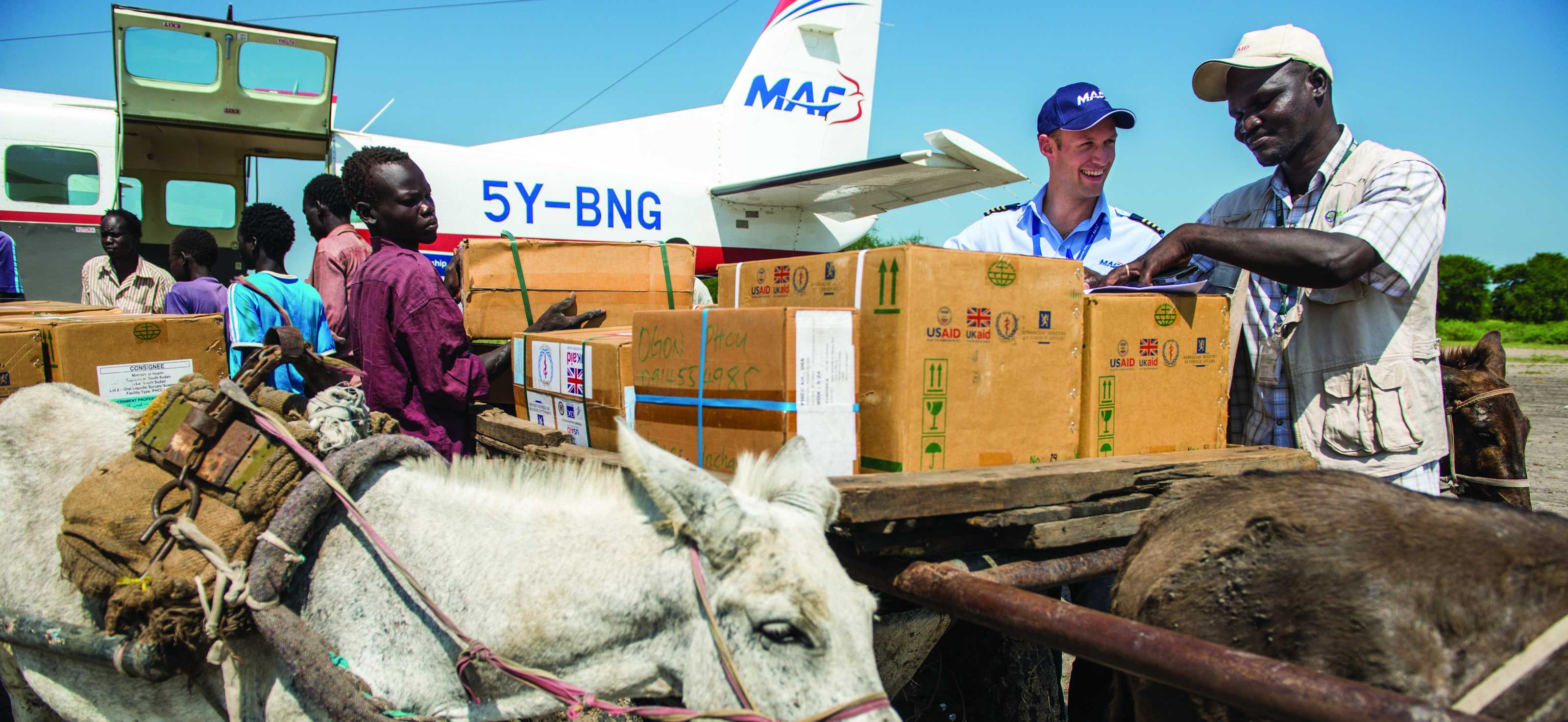The small plane, a Cessna Caravan, is loaded to the capacity with medicine and medical supplies. The one-way trip from Juba is about two hours but the plane is filled for a round-trip; there’s no place nearby to re-fuel. Pilot Reinier Kwantes plans the final bit of his route to bypass dangerous airspace as he descends. He can’t take the risk of getting shot.
Once he crosses the Nile River, he eases down to take a closer look at the short airstrip. Staff warned him that it had rained two days before, and this strip, made from the dreaded black cotton soil, becomes a sticky glue when wet. The airstrip is wide, though, and there’s room to spare if he needs more. He lands, braking hard. It was a good call. The clinics desperately need this cargo.
This is Kodok, South Sudan. It is remote, nearly impossible to get to and the heartbreak is nothing short of acute. After years of violent conflict, hundreds of thousands have been impacted. Some have fled. Some have returned. But nearly all are in need of a health care system that barely exists.
Services — and the health care heroes that provide them — are stretched far beyond their limits, often working with limited if any resources.
Because of your steadfast support, health care workers aren’t facing the challenge alone. In the aftermath of crises, your generosity equips life savers to set up and manage mobile clinics, reaching the previously unreachable.
Planes, trains and automobiles...and donkeys, canoes, and bikes
Corus World Health Medical Supervisor Dr. Oleny Amum and Field Operations Coordinator Serunkuma Luigi Adwo make sure the cargo — medicine and medical supplies — flown in on the MAF Cessna Caravan get to people who need it most. (MAF/LuAnne Cadd)
Getting around this area is difficult, especially in the rainy season. Four donkey carts arrive to pick up the cargo. Staff, including Medical Supervisor Dr. Oleny Amum, arrive on a quad bike. The cargo includes critical supplies and medicines such as anti-malaria injectables and rapid tests, IVs and syringes and other external and topical drugs. The cargo has to make it to all the clinics in the region.
This is the difficult part.
“These are not for Kodok alone,” Dr. Oleny explains. “It’s for all mobile clinics. We distribute the medicines equally. We take them by tractors, sometimes by the river, by canoes. Sometimes we go by quad bike, which takes three hours to the next clinic. By canoe it takes almost two days. They have no other way to get the medicines.”
Because of your support, health care heroes like Dr. Oleny are reaching thousands of patients with emergency and primary care through these clinics. The challenges are constant but because of you, the fight to reach those most in need can continue.
With your support, Corus World Health has a major role in the development of the health care system in South Sudan, working with government, partners and other health organizations to strengthen capacity and deliver high quality services.
It's hard to describe the layers of complexity health care workers navigate to work in such a hostile environment. By hiring and training staff who are themselves displaced, these clinics give a chance to serve their own communities and bring in their personal experiences.
The number of displaced people is staggering. One of the greatest issues that arises when a massive movement of people occurs is access to health facilities. (MAF/LuAnne Cadd)

